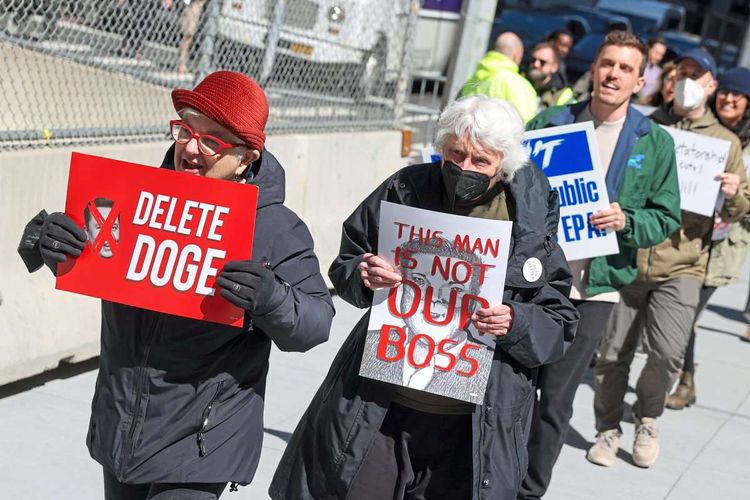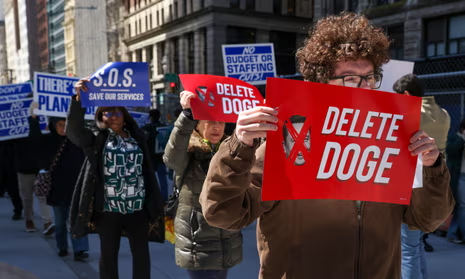Elon Musk’s controversial venture into government operations, the Department of Government Efficiency (DOGE), is slowly losing the explosive momentum it created earlier this year. However, while the immediate chaos appears to be fading, experts warn that the deeper consequences of Musk’s aggressive reforms could continue to ripple through the U.S. government and economy for years.
What Was DOGE All About?
Launched with the support of former President Donald Trump, DOGE was created to eliminate wasteful government spending and streamline operations. Musk took the reins with his trademark disruptive energy, leading to drastic moves: over 260,000 federal jobs were cut, and numerous government-issued credit cards were either canceled or had their spending limits slashed to as low as $1.
Musk and his team claimed these bold moves uncovered “astonishing” levels of waste, boasting that they saved taxpayers an estimated $160 billion. However, these numbers remain highly disputed, with watchdogs and independent analysts questioning the lack of transparency in DOGE’s reporting (The Guardian).

Fallout: Public Backlash and Tesla’s Woes
While Musk’s supporters applauded his crackdown on government inefficiency, the reality on the ground was messy. Key government services, especially in areas like social services and foreign aid, were severely disrupted. Public protests erupted across the country, with anger sometimes spilling over into vandalism against Musk’s companies, including Tesla properties.
The financial toll on Musk’s own empire has been steep. Tesla reported a 71% plunge in quarterly profits and a 9% dip in revenue. Tesla stock has fallen by 37% since January 2025, as investors grew increasingly alarmed by Musk’s deep political involvement detracting from his business focus.
Musk Steps Back – But Not All the Way
Under mounting pressure from shareholders and political allies alike, Musk announced plans to reduce his involvement in DOGE. Beginning in May, he said he would limit his commitment to just one or two days a week, refocusing the majority of his attention on stabilizing Tesla.
Yet Musk remains fiercely committed to DOGE’s mission. In a public statement, he insisted that fighting government waste is vital for America’s future prosperity and pledged to continue supporting DOGE’s initiatives at a strategic level .
The Deeper Problems Ahead
Although the initial “chaos” phase of DOGE is settling, experts suggest the real consequences are only starting to emerge. With much of the low-hanging budget cuts already made, DOGE’s next phase focuses on policy initiatives, including the creation of a centralized immigration data system.
Critics warn that such moves could have serious civil rights implications. Concentrating sensitive immigration data into a single system raises significant concerns about government surveillance, data privacy, and the potential erosion of protections for vulnerable communities (The Guardian).
Civil liberties groups are already gearing up for legal battles, arguing that DOGE’s shift from cost-cutting to policy-making could fundamentally alter the balance of power in American governance without proper oversight or democratic accountability.

A Legacy in Question
As Musk reduces his day-to-day role at DOGE, analysts are closely watching both the initiative’s future and Tesla’s recovery. Investors are hoping Musk’s renewed focus on Tesla will help repair the company’s financial damage and restore confidence among consumers and shareholders.
However, the broader questions about DOGE’s long-term impact remain unanswered. Will Musk’s reforms be remembered as a bold step toward government efficiency, or a reckless experiment with lasting damage?
Only time will tell whether DOGE’s second act will be more measured — or even more disruptive than the first.
This article has been carefully fact-checked by our editorial team to ensure accuracy and eliminate any misleading information. We are committed to maintaining the highest standards of integrity in our content.

Outside of work, he enjoys playing chess, following cricket, and writing short stories. His commitment to integrity and in-depth analysis strengthens OTE News’ mission of providing trustworthy journalism.




